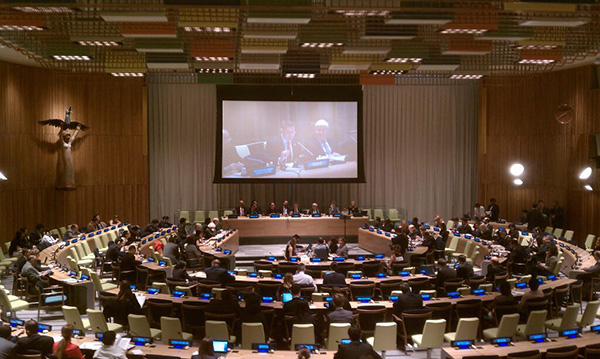
Steinhardt professor Hirokazu Yoshikawa and Madhav Chavan, co-founder and CEO of Pratham, an organization in India that supports primary school children, want the United Nations to set a target for early childhood development in its Sustainable Development Goals for 2015 to 2030.
The UN Sustainable Development Solutions Network was launched in 2012 to accelerate the advancement of global countries by the use of academia, civil society and the private sector. The network consists of 12 thematic groups which try to find solutions to facilitate growth in developing countries. Rather than being research oriented these groups look for solutions.
One of those thematic groups consists of Yoshikawa and Chavan, who focus on early childhood development, education and transition to work.
Yoshikawa and Chavan’s report is entitled, “The Future Of Our Children: Lifelong, Multi-Generational Learning For Sustainable Development,” and is a draft of goals and targets for education and early childhood development.
“The belief of our group is that children have the right not only to survive but to thrive, so they have a chance to contribute to sustainable societies and a sustainable world,” Yoshikawa said. “Our target and indicators for comprehensive early childhood development and learning address the critical needs for health, education and poverty reduction during the first years of life.”
Steinhardt senior Antonia Forika said that this information is critical because of the lack of information regarding education.
“I think it is extremely important to focus on early childhood development because it is an area that the world as a global society is sorely lacking truly effective policies in, somewhat due to the previous lack of information about just how critical early childhood development is to communities,” Forika said.
Yoshikawa noted that research from neuroscience, developmental science and economics indicate that early childhood development programs influence a person’s life for years.
“This evidence shows that early childhood development can serve as a very strong foundation for economic development and social inclusion,” Yoshikawa said.
Forika said that to see positive outcomes in education there must be an investment in education.
“I believe that a good preschool program can make a huge difference in the development of a child and can predict progress in future grades,” Forika said. “The other initiatives are equally important because if children are living in poverty or do not have access to quality health care, their education and development suffer.”
Steinhardt education professor John Mayher said the call for action is also needed in the United States, especially after recent efforts made by the Republicans to cut programs such as food stamps.
Steinhardt first-year graduate student Yonwoo Kim said the report will bring attention to this issue.
“Many people will know the importance of the early education and nutrition of young children with this report,” Kim said.
Additional reporting by Tony Chau. Su Sie Park is a staff writer. Email them at [email protected].
























































































































































